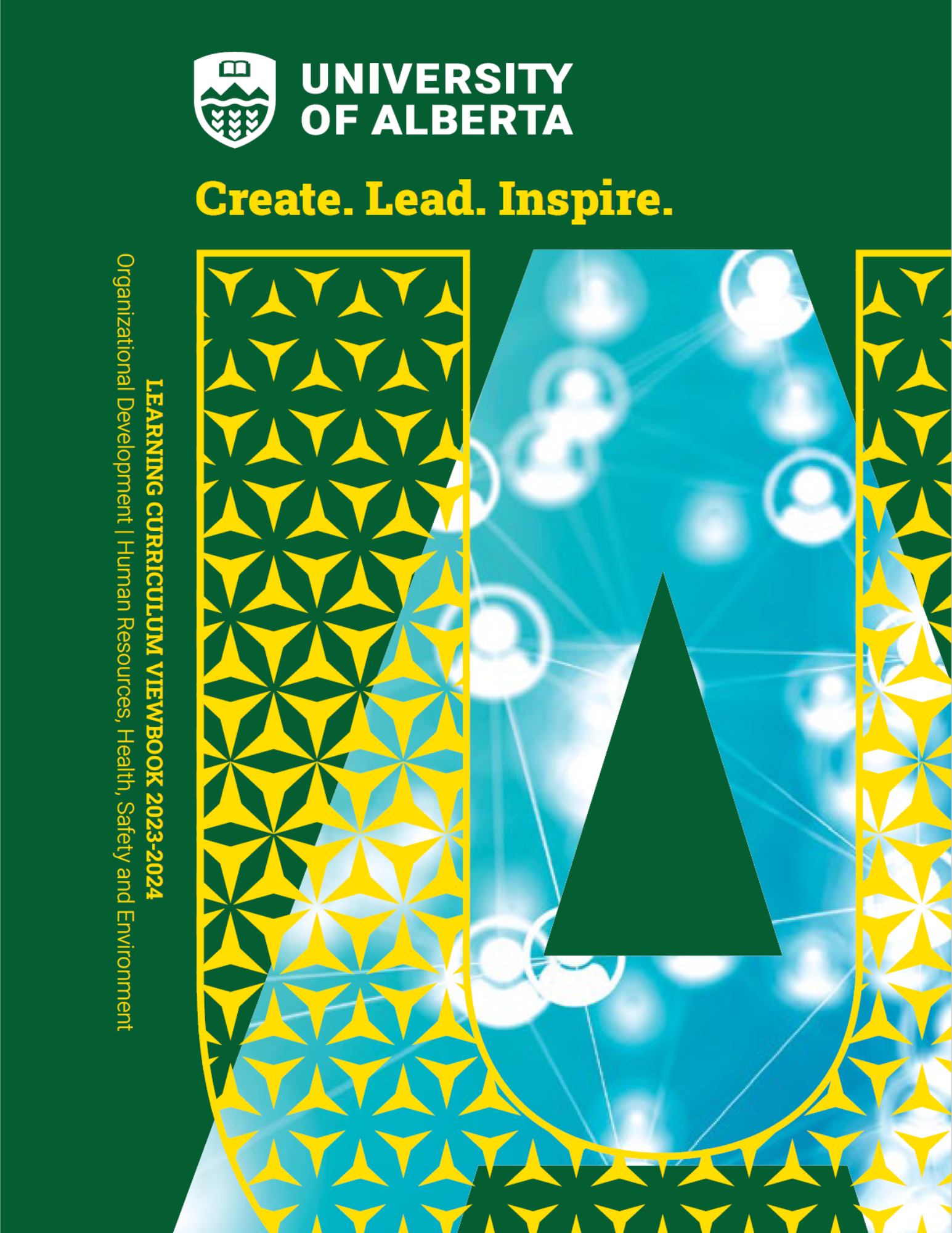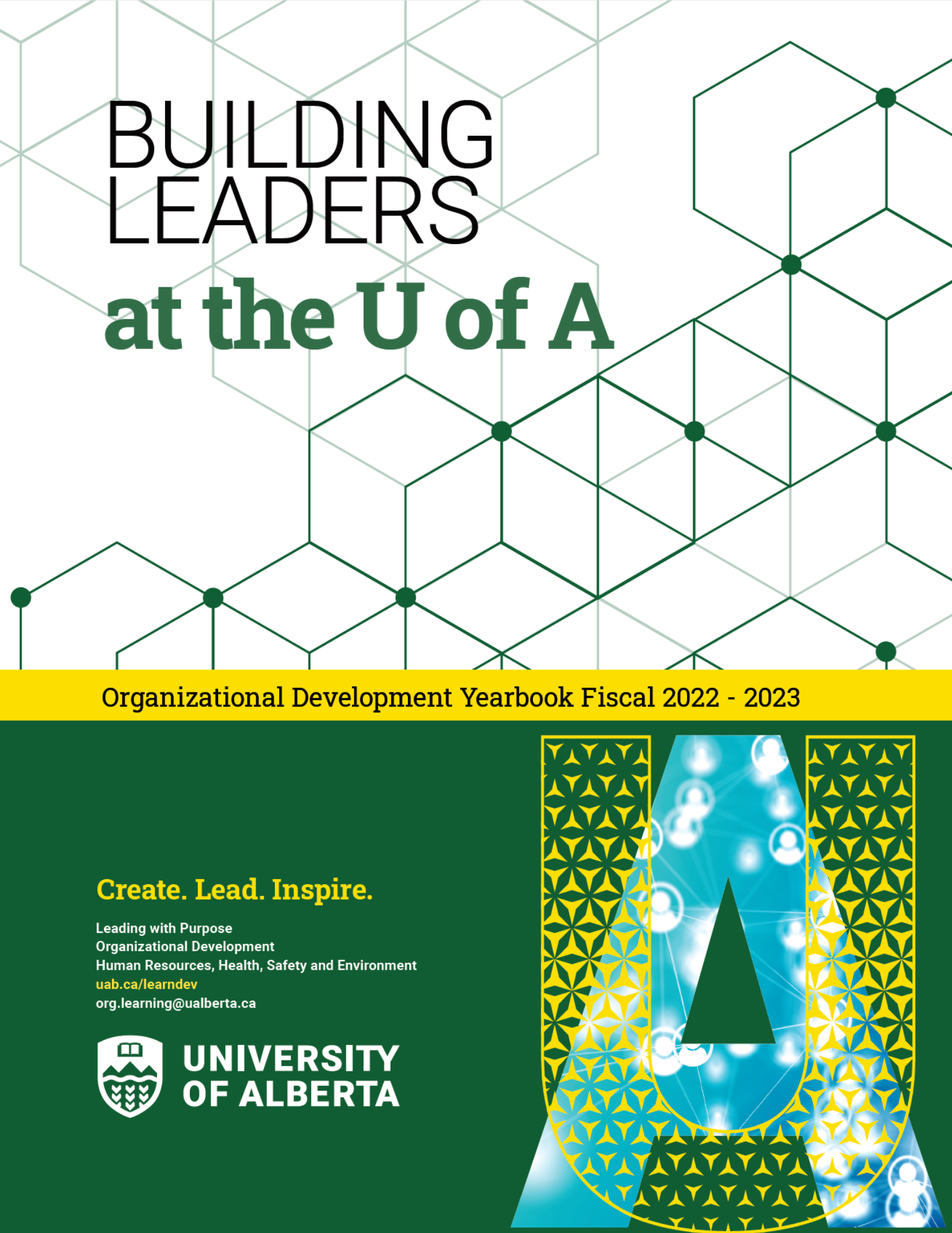Hybrid Workplace

At the U of A we recognize that the world of work has undergone significant change over the last two years and traditional approaches to the workplace have been challenged.
The Work From Home (WFH) Program offers employees greater flexibility, work-life balance, and control over where and how they do their best work.
Leaders, teams, and individual contributors need to rethink how and where work is done to ensure the benefits of the hybrid work model can be fully realized while also meeting operational and strategic goals.
Hybrid work means we:
- Build, leverage, and translate workplace skills into the hybrid context.
- Challenge our own biases to mitigate harmful or discriminatory practices and policies, and to make sound decisions.
- Create clear boundaries between work and home.
- Communicate expectations.
- Establish ways of working that recognize personal preferences and are inclusive.
- Demonstrate emotional intelligence in how interact with one another and manage relationships.
Hybrid Workplace Curriculum
Leading Hybrid: Doing Hybrid Well | Facilitator: Deanna Davis
While hybrid work is not new, the global pandemic ignited unprecedented interest in the approach. For many teams at the University of Alberta, hybrid work has replaced the traditional work model. While the hybrid workplace is full of opportunities to increase your team’s effectiveness, collaboration, and well-being, it also requires a thoughtful approach to realize these benefits.
This workshop will provide you with the foundational knowledge, tools, and strategies required to set up and lead an effective hybrid team. Using your operational context as a jumping off point, you will consider how to co-create team norms and strategies that will support operational goals, team effectiveness, and employee success.
Learning Outcomes
- Explain some of the benefits and challenges of hybrid teams.
- Describe six principles to be considered when designing your hybrid team.
- Describe the three components of the hybrid leader mindset and the key competencies leadership need to leverage.
- Initiate the design of your hybrid team through critical reflection.
- Discuss leadership strategies supporting effective and productive hybrid teams.
- Identify promising practices for performance development in a hybrid workplace.
Thriving as a Team Member in the Hybrid Workplace | Facilitator: Laurie Hillis
Great teams don’t just happen. They are the result of individual team members demonstrating intentional practices, the effective use of key competencies, and a shared mindset. But what does it mean to be a great team member in the hybrid workplace? This workshop will provide foundational knowledge of the elements of effective teams and will offer you strategies and best practices that will help you co-create an effective hybrid team where you can thrive.
Learning Outcomes
- Develop strategies to ask for what you need in order to be successful in a hybrid team.
- Explain the natural stages of team/group development and reflect on your own context.
- Describe how empathy and self-compassion can support you and your team’s success.
- Identify tools and strategies to help you manage your day in the hybrid context.
Psychological Safety in Hybrid Teams | Facilitator: Laurie Hillis
There is a mistaken belief that psychological safety in the workplace is simply about "being nice" to each other or feeling good. In fact, psychological safety is really about enabling high performance through "a belief that one will not be punished or humiliated for speaking up with ideas, questions, concerns, or mistakes."
Within the hybrid context teams have limited in-person contact with one another as compared to traditional work models. This can pose challenges for creating psychological safety. This workshop will introduce you to fundamentals of psychological safety and explore its relationship to motivation, accountability, and team effectiveness.
Learning Outcomes
- Describe the fundamentals of psychological safety.
- Explain the connection between psychological safety and motivation/accountability.
- Identify the four domains of psychological safety and assess your current level of safety.
- Discuss ways to increase psychological safety for yourself and others.
Building Trust in a Hybrid Workplace | Facilitator: Laurie Hillis
Trust happens between two people or people and an object (say an institution, a process, etc.). Psychological safety just is—you feel the safety or the ability to be vulnerable or you don’t. Yet they have a dynamic relationship and one can’t happen without the other. Trust is earned one conversation at a time.
In this workshop, you will learn about the four distinctions of trust, characteristics of trust in a hybrid workplace, what causes trust to break down and what we can do to increase trust in a hybrid workplace.
Learning Outcomes
- Examine how trust is developed/supported differently in a hybrid workplace.
- List characteristics of trustworthy teams.
- Define three ways we trust others.
- Explain a practical 4-component framework to analyze trust.
- Outline the enemies of trust.
- Brainstorm ways to increase trust in a virtual environment through communication, meeting protocol, etc.
Managing Change in the Hybrid Workplace* | Facilitator: Laurie Hillis
It has often been said that change is the only constant. We’ve all experienced a lot of personal and professional change related to our organizational transformation and restructuring, remote work, the pandemic. The implementation of the Work From Home Program brings yet more change as teams and individual contributors transition to a hybrid work model.
During this workshop, you will be introduced to a model that will help you understand how change impacts people and will provide a snapshot of how you are feeling about the changes you are experiencing. This model will also give you a framework for thinking about how to support yourself and others (informally or formally) throughout the change.
Learning Outcomes
- Explain how the field of neuroscience impacts how we lead ourselves and others through change.
- Identify strategies for adapting to changing conditions, such as working on or leading a hybrid team.
- Describe ways to manage our own healthy perspectives regarding change to support others.
- Outline the natural stages of change that people experience.
*This session was previously titled, Leading Self and Others Through Change. Learners who completed the session under this title are discouraged from registering in Managing Change in the Hybrid Workplace as the session content has not changed.
5Cs of Connected Hybrid Teams | Facilitator: Laurie Hillis
Communicating within teams is challenging at best. Within hybrid teams it can be even more challenging. Thinking about how to align team members around a clear vision and picture of the work to be done, communicating clear roles, responsibilities and accountabilities are particularly important in hybrid teams to avoid a team climate of blame. Ensuring team members are focused on the outcomes, building strong connections and being inclusive, despite these challenges is key. This workshop will equip you with a practical 5-step framework to support positive team dynamics.
Learning Outcomes
- Explore the learning dynamics that occur in hybrid teams that either support team member motivation and accountability or take it away.
- Describe a practical 5-step framework for team alignment, strategic thinking, decision-making and delegation.
- Practice the 5C model by coming to the session with a specific communication you’d like to practice working on.
- Identify components of healthy team communication to include all voices regardless of where the team member is located or how they are participating.
Facilitated Problem Solving in a Hybrid Work Environment | Facilitator: Laurie Hillis
Encouraging input and creative buy-in from all team members can be challenging, especially during times of change. The added complexity of hybrid work environments means that leaders need to find new ways to engage their team in problem-solving and creative idea generation.
In this interactive workshop you will learn about tools to help encourage feedback and facilitate effective collaborative conversations, while having some fun.
Learning Outcomes
- Practice a creative facilitation tool to encourage sharing of diverse opinions and ideas.
- Build strategies to ensure that all voices are heard regardless of location.
- Develop strategies to gather feedback from all team members and foster better decisions.
Coaching in a Hybrid Workplace| Facilitator: Laurie Hillis
Coaching and mentoring team members has become more challenging in a hybrid world. Effective leaders recognize that the traditional approach of command and control leadership limits a team’s ability to be innovative and collaborative. But how do you best support your team? Whether the coaching your team needs is related to skill development, enhanced performance or professional development, the hybrid context can make it difficult to know who needs more or less of your time. Coaching requires the skills of deep listening, asking good questions, giving and receiving feedback and psychological safety. In this workshop, you’ll learn a simple, yet powerful coaching model to set you and your team up for success.
Learning Outcomes
- Describe the coaching model and how it differs from counseling, mentoring, and consulting.
- Describe the three different types of coaching.
- Explain a practical coaching model.
- Practice coaching in a safe environment.
- Explore strategies for positive and constructive feedback.
Workshops that address the curriculum are offered and added throughout the year. Please visit the U of A Events hub to find available courses. If you are interested in offering a workshop to your team that currently has no availability, please contact org.learning@ualberta.ca to discuss options.

